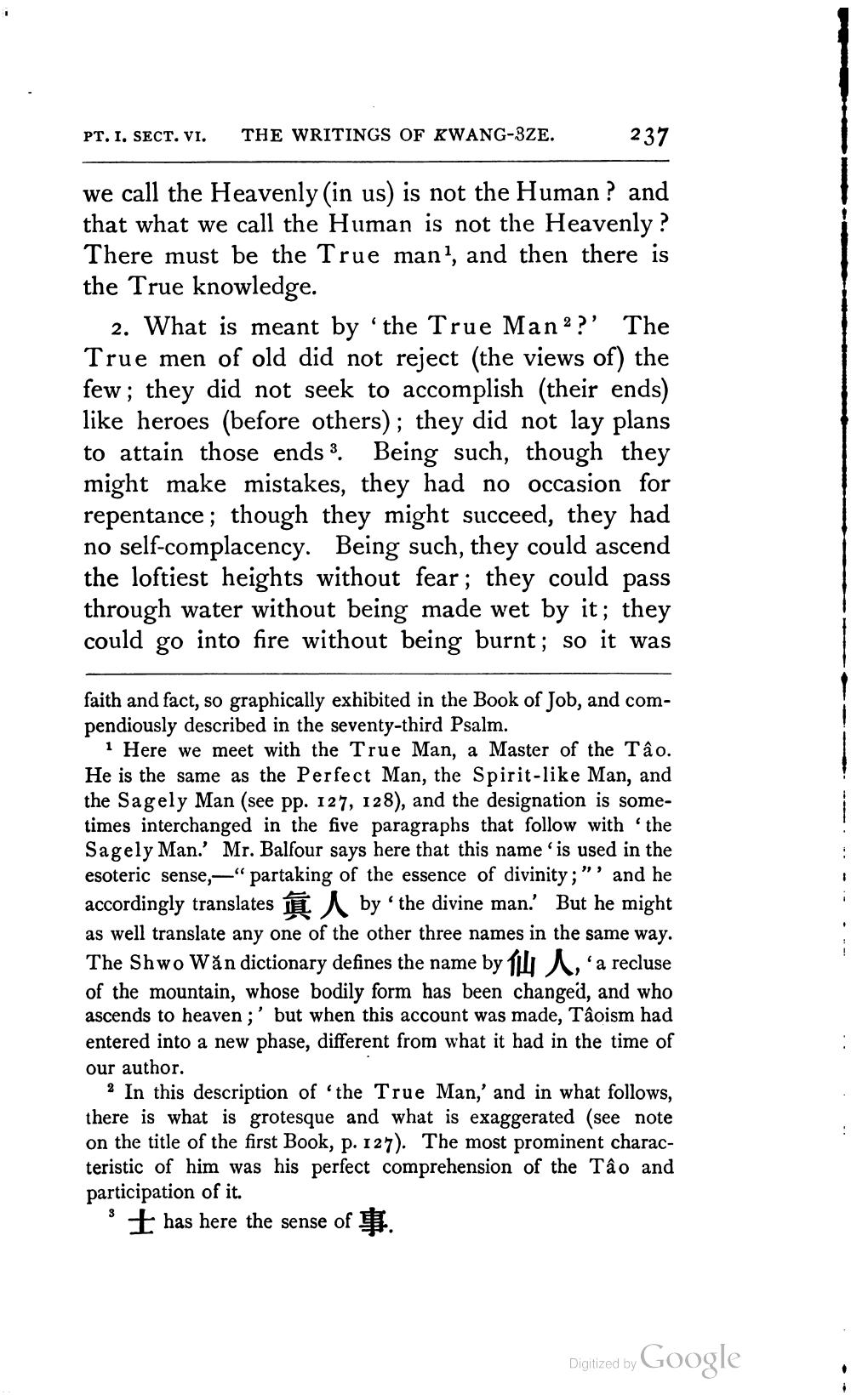________________
PT. I. SECT. VI.
THE WRITINGS OF KWANG-BZE.
237
.
we call the Heavenly (in us) is not the Human ? and that what we call the Human is not the Heavenly ? There must be the True man', and then there is the True knowledge.
2. What is meant by the True Man??' The True men of old did not reject (the views of) the few; they did not seek to accomplish (their ends) like heroes (before others); they did not lay plans to attain those ends 3. Being such, though they might make mistakes, they had no occasion for repentance; though they might succeed, they had no self-complacency. Being such, they could ascend the loftiest heights without fear; they could pass through water without being made wet by it; they could go into fire without being burnt; so it was
faith and fact, so graphically exhibited in the Book of Job, and compendiously described in the seventy-third Psalm.
1 Here we meet with the True Man, a Master of the Tâo. He is the same as the Perfect Man, the Spirit-like Man, and the Sagely Man (see pp. 127, 128), and the designation is sometimes interchanged in the five paragraphs that follow with the Sagely Man.' Mr. Balfour says here that this name is used in the esoteric sense, —"partaking of the essence of divinity;"' and he accordingly translates i by the divine man' But he might as well translate any one of the other three names in the same way. The Shwo Wăn dictionary defines the name by 1 l, 'a recluse of the mountain, whose bodily form has been changed, and who ascends to heaven;' but when this account was made, Taoism had entered into a new phase, different from what it had in the time of our author.
2 In this description of the True Man,' and in what follows, there is what is grotesque and what is exaggerated (see note on the title of the first Book, p. 127). The most prominent characteristic of him was his perfect comprehension of the Tâo and participation of it.
s has here the sense of .
Digitized by Google




